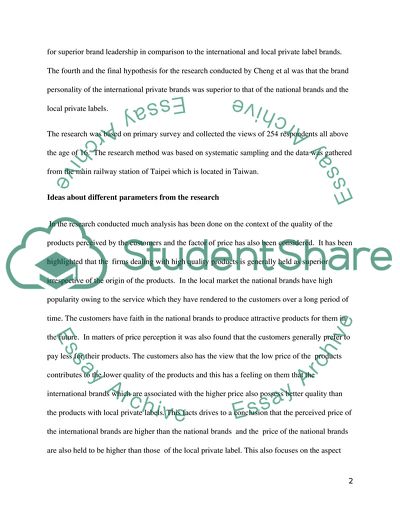Cite this document
(The Influence of The Parity Brands In Taiwan Assignment, n.d.)
The Influence of The Parity Brands In Taiwan Assignment. Retrieved from https://studentshare.org/marketing/1587345-the-impact-and-influence-of-local-industries-under-international-parity-brands-enter-taiwan-take-zara-and-uniqlo-for-example
The Influence of The Parity Brands In Taiwan Assignment. Retrieved from https://studentshare.org/marketing/1587345-the-impact-and-influence-of-local-industries-under-international-parity-brands-enter-taiwan-take-zara-and-uniqlo-for-example
(The Influence of The Parity Brands In Taiwan Assignment)
The Influence of The Parity Brands In Taiwan Assignment. https://studentshare.org/marketing/1587345-the-impact-and-influence-of-local-industries-under-international-parity-brands-enter-taiwan-take-zara-and-uniqlo-for-example.
The Influence of The Parity Brands In Taiwan Assignment. https://studentshare.org/marketing/1587345-the-impact-and-influence-of-local-industries-under-international-parity-brands-enter-taiwan-take-zara-and-uniqlo-for-example.
“The Influence of The Parity Brands In Taiwan Assignment”, n.d. https://studentshare.org/marketing/1587345-the-impact-and-influence-of-local-industries-under-international-parity-brands-enter-taiwan-take-zara-and-uniqlo-for-example.


